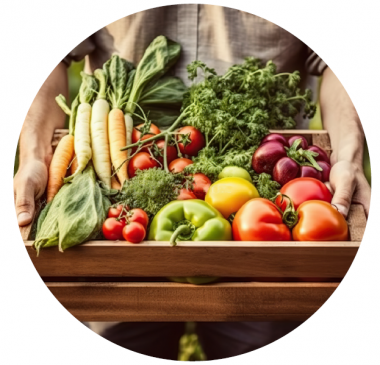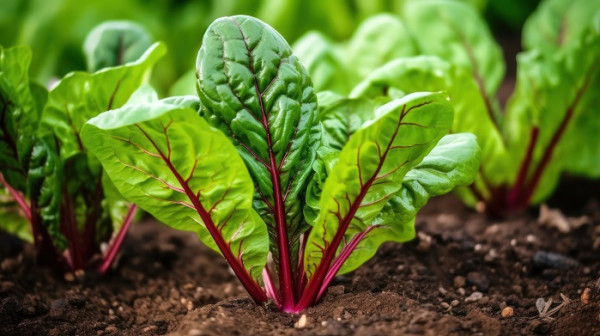Are There Health Risks Associated with Vegetables from Urban Farming?
Published: June 2023
Download PDF
EnviroMail_05_Europe_Are There Health Risks Associated with Vegetables from Urban Farming?
Many people perceive locally grown vegetables as healthier than those bought in stores, but is it always true, or are there health risks associated with food grown in urban environments? A research group led by Associate Professor Anna Augustsson at Linnaeus University has investigated, among other things, how particles from dust and soil contaminate vegetables and how many of these particles remain on the vegetables after they have been rinsed. In collaboration with ALS laboratories, the metal content in the vegetables has been analysed.

The advantage of vegetables and herbs grown in urban environments is that they don‘t require long-distance transportation (reducing carbon footprint), enrich the urban environment, promote biodiversity, and provide increased food security.
Since cities are often more polluted than rural areas, it is recommended to cultivate in clean soil and another common advice is to rinse urban-grown vegetables to remove any potential contaminants before consumption.
Vegetables are affected by the cultivation environment
Uptake of metals from the soil occurs through the roots of the vegetables and previous studies have shown that vegetables grown in metal-contaminated soil generally have higher metal levels. In addition to root uptake, contaminants can also be transferred to above-ground vegetables through soil and dust particles from the surrounding environment sticking to the plant surfaces. These exogenous, or externally applied, particles come from the cultivated soil, but to some extent also from road dust or windblown soil that may be contaminated.
The studies conducted by the research group at Linnaeus University are based on analyses of leafy
vegetables (lettuce, Swiss chard, kale, and parsley) as well as soil and dust samples from an urban farm in Malmö. The farming site is located near a heavily trafficked road. For comparison, vegetables grown indoors in an environment with minimal impact from soil splashes and airborne particles were also analysed.
In one study, the group examined the extent to which metal contamination in urban-grown leafy vegetables is due to root uptake versus contamination via exogenous particles. In the other study, the group investigated the effect of rinsing the urban-grown vegetables before consumption.
ALS laboratory specialised in metal analysis, performed the analyses on dried and homogenised plant material, soil, and dust using ICP-SFMS. Our methods for analysing plant material, soil, and dust allow us to differentiate between total concentrations and exogenous concentration levels in the vegetables (i.e., metals that can be linked to particles on or inside the plant material).
The extensive number of metals analyzed (71 in total) and the low reporting limits have provided a good overview of the metals that can be expected to be found in the urban-grown vegetables. Total metal concentrations were analyzed in the dust and soil samples, as well as leachable metal concentrations to enable comparison with previous studies.
Are there health risks associated with urban farming?
The results show that particles on urban-grown leafy vegetables significantly contribute to the intake of harmful metals when consuming the vegetables, especially for metals like lead and arsenic. Even if the vegetables have beenBe rinsed, toxic metal particles remain on the vegetables in significant amounts.

The research group has discovered that contamination of toxic metals via exogenous sources can have the same or even greater significance than uptake through the roots for several metals. This means that control and design of farming sites in urban areas need to be developed to minimize the possibility of contaminated soil and dust particles reaching the vegetables.
Measures such as rooftop farming, barriers in the form of fences/green walls, or other protective barriers, along with thorough washing of the vegetables before consumption, can significantly reduce the risks of ingesting toxic metal particles. These measures are as important as ensuring clean soil.
We at ALS Scandinavia would like to thank Linnaeus University for entrusting us with conducting these analyses for you!
Read more
Metals in food (analysis by ALS Laboratories)
Articles:
Augustsson et al. Managing health risks in urban agriculture: The effect of vegetable washing for reducing exposure to metal contaminants (Science Direct)
Augustsson et al. Urban vegetable contamination - the role of adhering particles and their significance for human exposure (Unpublished at the time of writing, please contact Anna Augustsson (anna.augustsson@ lnu.se) if you wish to access it)

